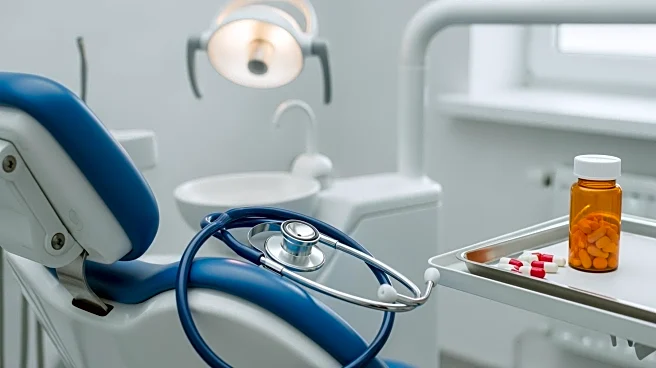What's Happening?
A South Korean court has ruled in favor of a dentist, identified only by his surname A, who faced disciplinary action for self-prescribing hair-loss medication. The Seoul Administrative Court overturned the Health Ministry's decision to suspend the dentist's
license for one month and 15 days. The ministry had argued that self-prescribing a prescription-only drug constituted unlicensed medical practice, which is prohibited under medical law. However, the court found no legal basis for this claim, stating that the restrictions on unlicensed medical practice are intended to prevent harm to others and protect public health. The court emphasized that self-treatment falls within the private sphere and that individuals have a constitutional right to make autonomous decisions about their medical care. The ruling noted that there was no evidence the dentist prescribed or administered the drug to others.
Why It's Important?
This ruling highlights the ongoing debate over the boundaries of medical practice and the rights of medical professionals to self-treat. The decision could set a precedent for similar cases, potentially influencing how medical laws are interpreted regarding self-prescription. It underscores the tension between regulatory bodies aiming to maintain public health standards and the autonomy of individuals, including medical professionals, in managing their health. The outcome may impact future regulatory policies and disciplinary actions within the medical community, affecting how medical professionals navigate their rights and responsibilities.
What's Next?
The Health Ministry has not yet announced whether it will appeal the court's decision. If an appeal is filed, it could lead to further legal scrutiny and potentially a higher court ruling that might either reinforce or overturn the current decision. The case may prompt discussions within the medical community and regulatory bodies about the need for clearer guidelines on self-prescription and the scope of medical practice. Stakeholders, including medical associations and legal experts, may weigh in on the implications of this ruling for medical practice standards.















